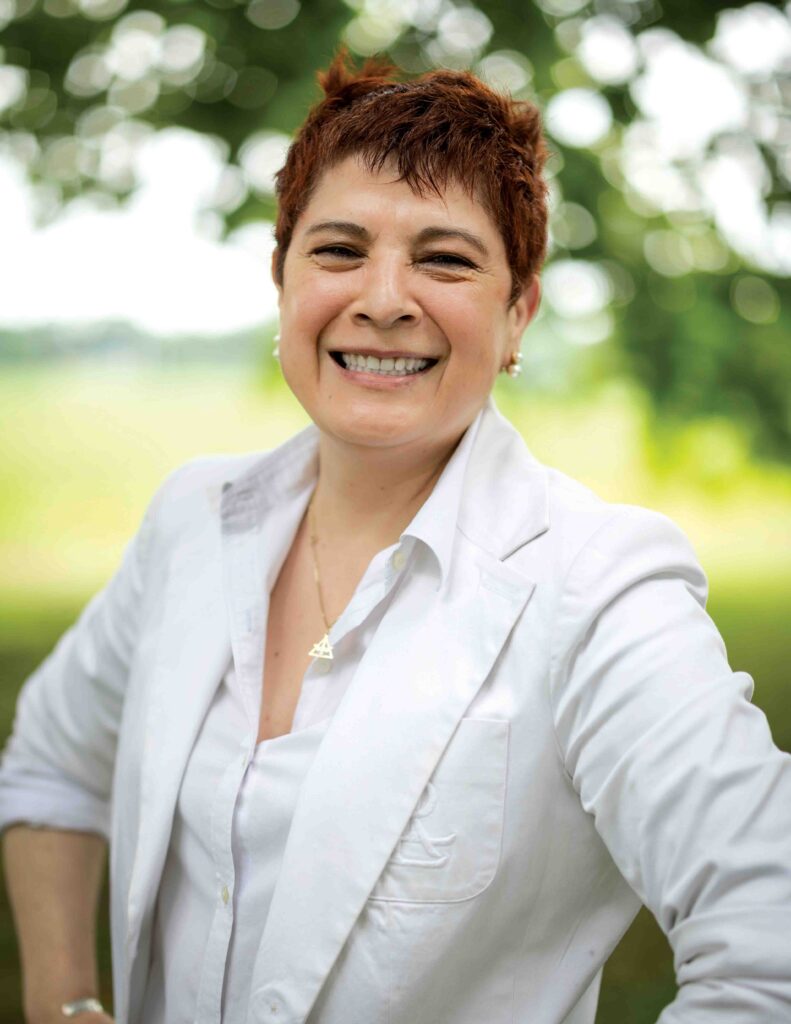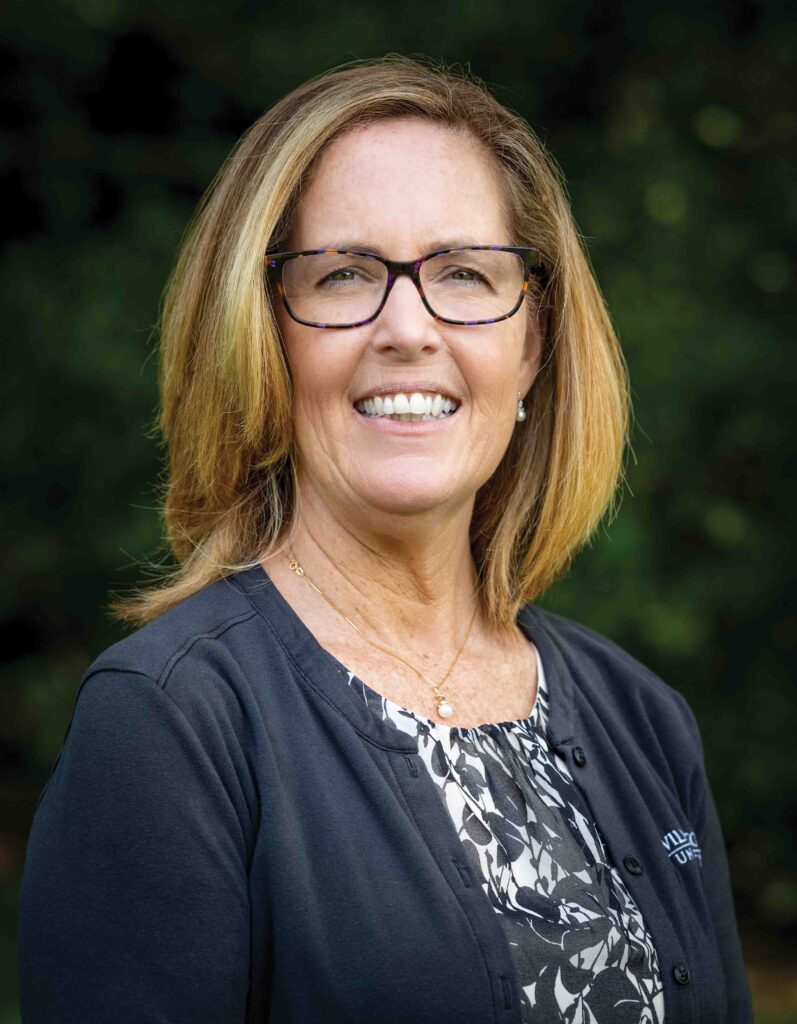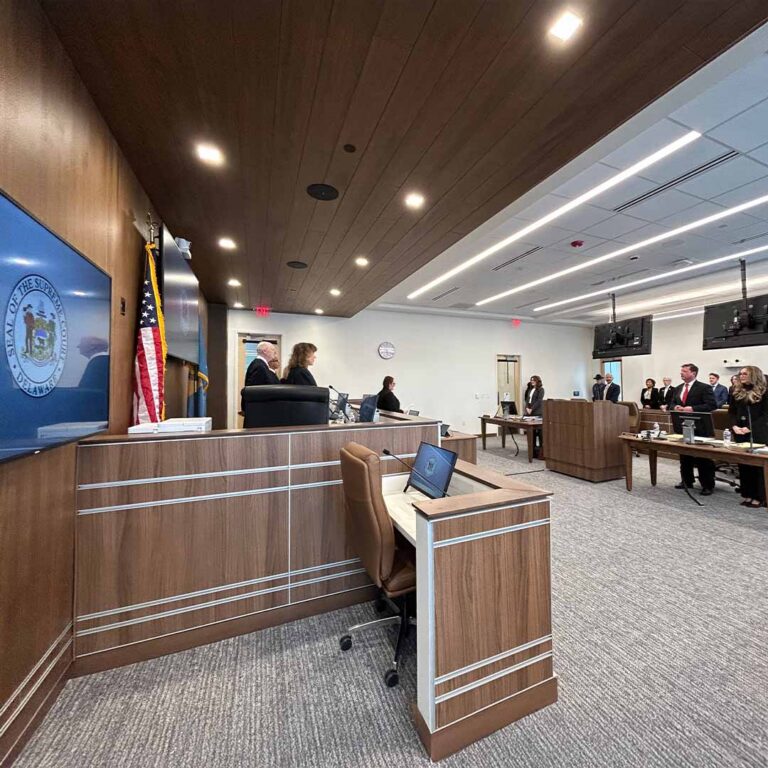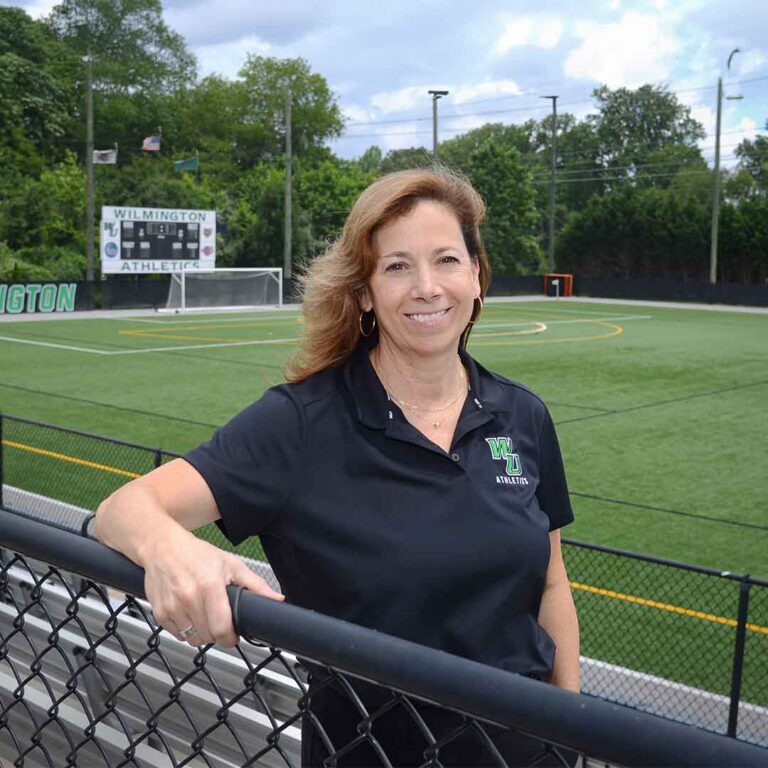The Spanish Immersion Pilot

Hispanics are the fastest growing segment of the population in the United States. No wonder businesses are looking for ways to tap this vibrant source of talent and energy.
At Wilmington University, the College of Business is leading the way for students who want to gain an edge as managers, piloting Principles of Management in a Spanish Immersion format.
“In the for-profit sector, they understand the power of the Latino wallet,” says Dr. Guillermina Gonzalez, assistant chair for Undergraduate Business programs.

Dr. Guillermina Gonzalez
Indeed. According to the U.S. Bureau of Labor Statistics, Latino purchasing power is currently estimated at $3.4 trillion. In 2021, Latino income nationwide totaled $2.5 trillion, up 4.7%. That’s more than double the 1.9% increase for non-Latinos.
Presented online, the class focuses on core managerial responsibilities: communication, planning and administration, teamwork, strategic action, global awareness, cultural intelligence, and self-management. It’s a genuinely bilingual program. Instruction is in Spanish, and assignments, readings, and student presentations are submitted in English.
The pilot was designed for students who speak both Spanish and English and would prefer instruction in Spanish, either to improve their comprehension of Spanish or as an opportunity to improve their English skills through writing.
Dr. Gonzalez says that bolstering communication across cultures is vital in ensuring smooth and accurate business transactions. Language is
the ultimate connector of dots. AU.S. Committee on Economic Development study found that American businesses lose more than $2 billion yearly because of language or cultural misunderstandings.
“It is a lot more than translation,” she says. “Ideas need to be conceptualized.”
The pilot is in keeping with WilmU’s commitment to preparing students to meet their career goals and ensuring everyone gets a seat at the table, says Dr. Kathy Kennedy-Ratajack, AVP of Academic Affairs and Partnerships (former College of Business dean).

Dr. Kathy Kennedy-Ratajack
“Bilingual academic programs nurture a broader understanding of culture in the classroom and the workplace,” Dr. Kennedy-Ratajack says. “This course in the College of Business fosters education through understanding and communication that transcends borders. Students are empowered to navigate a globalized world and become managers with empathy and respect for all cultures.”
The Spanish Immersion pilot, a three-hour, once-weekly class, was designed to be accessible to students who are intent on careers in a global economy. That includes a burgeoning number of Hispanics in organizational leadership positions. Since 2012, Hispanic workers in management, professional, and related occupations have grown from 8% to nearly 11%; nearly 7% of chief executives are Hispanic. The most significant demand for Spanish speakers is for hospitality managers, social workers, and health care practitioners.
“Bilingual academic programs nurture a broader understanding of culture in the classroom and the workplace.”—Dr. Kathy Kennedy-Ratajack
Dr. Gonzalez was formerly an executive in both the corporate and the nonprofit sectors in the U.S., Europe, and Mexico. She began her career in marketing and sales in multinational organizations, including ExxonMobil, Mars, Tetra Pak, and Olivetti. She then transitioned to the nonprofit sector, serving as executive director of two advocacy organizations: Voices Without Borders and Delaware Arts Alliance.
“I know from experience that being multicultural allows for better engagement. It helps to build bridges in a global economy where technology has removed borders and barriers,” she says. “I became the go-to person for connecting not only the Latino community but also pro-profit and nonprofit organizations.”
To shape the Spanish Immersion course, Dr. Gonzalez reached out to the community to gather input on the needs of students, employers, and organizations. More than 50 individuals shared their thoughts and insights in 11 focus groups.
Brenda Soto, an adjunct instructor and a bilingual human resources consultant, taught the pilot. She’s passionate about accessible education. As an international human resources professional, she supported the implementation and restructuring of workforce projects for Fortune 500 organizations in North America, South America, the Caribbean, and Western Europe. She also hosts an online career-coaching program called From Job 2 Joy, in English and Spanish, that currently reaches people in America and countries such as Chile, Argentina, El Salvador, and Mexico. Soto grew up in Puerto Rico and is a former Delaware Hispanic Commission executive board member.

“When people think of Hispanic, they often think of Texas, California, and Arizona,” Soto says. “But the Hispanic community also is growing in Delaware.”
In the 2020 census, 10.5% of people in Delaware reported Hispanic or Latino origin, an increase of 42.4% from the 2010 census. In Sussex County, the Hispanic population has boomed, growing more than 10-fold over the past 30 years due to an influx of immigrants from Mexico and Guatemala, according to a report by the Delaware Community Foundation. Hispanic-owned businesses grew 165% between 2013 and 2017.
Two students who completed the Spanish Immersion pilot personify the program’s dual mission of serving Spanish-speaking students and native English speakers who want to improve their fluency in Spanish.
One is a native English speaker from Minnesota. Only 6% of that state’s population is Hispanic, but the numbers are increasing, rising 38% between 2012 and 2020. “She doesn’t come from a Latino background,” Soto says. “She simply wanted to improve her Spanish and did very well.”
The other student is a Spanish speaker from Texas, where 40.2% of the population is Hispanic. She wanted to enhance her management skills in a class taught in her native tongue while improving her ability to communicate in English.
Their backgrounds are different, but their goals are the same. Both are working as full-time customer service representatives while completing their bachelor’s degrees at WilmU. And both want to move into management, one in human resources in the banking sector and the other in telecommunications.
Soto says bilingual managers have an advantage in better communicating with teams, employees, and clients. That includes the personal touch — the skills that help to inspire and motivate employees.
“It’s about bonding with your co-workers, showing interest in what other people do,” she says. “It helps in connecting people who work remotely, too.”
Research also suggests bilingual workers can command higher salaries. A study published in Empirica, an economics journal, found that job candidates who speak a second language can expect to earn 35% more. Research by Language Testing International (LTI), which certifies individuals in language proficiency, says nine out of 10 employers rely on employees who are fluent in a language other than English, especially when developing new markets; 56% expect demand for bilingual and multilingual speakers to increase significantly over the next five years. LTI says bilingual staff typically make 20% more than employees who speak and understand one language.
The benefits of a bilingual workforce aren’t limited to the business world. Based on the success of the College of Business pilot, the model is also being explored by WilmU’s colleges of Education and Liberal Arts and Health Professions and Natural Sciences.
Still, there are challenges in ramping up bilingual programs, Dr. Gonzalez says. The most significant hurdle is building a team of bilingual instructors. “To find instructors who are truly bilingual is not an easy task,” she says.
Establishing that infrastructure will enable WilmU to grow its language immersion offerings to various areas of study to keep pace with demand in an evolving world.
“Decision-making can be complex and multifaceted,” Dr. Gonzalez says. “Language should enhance that process, not get in the way.”
— Eileen Smith Dallabrida



